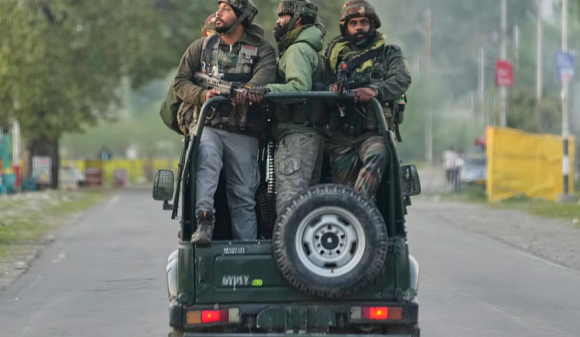Omicron BF.7 threat: Experts urge people to follow Covid protocol
BENGALURU,OCT. 25: In the wake of the detection of BF.7 Omicron sub-variant in different parts of India, experts have called for diligent following of Covid-19 protocols in Karnataka, said Navodaya Gilla, Consultant — Internal medicine, CARE Hospitals Group.
BENGALURU: In the wake of the detection of BF.7 Omicron sub-variant in different parts of India, experts have called for diligent following of Covid-19 protocols in Karnataka, said Navodaya Gilla, Consultant — Internal medicine, CARE Hospitals Group.
Also, called the Omicron Spawn, the BF.7 sub-variant is the newest form that has high transmissibility.
“This is because the new variant quickly bypasses the immunity that a person has developed through a natural infection with an earlier variant or even if the complete course of the vaccines are taken,” he added.
“There is an expectation that the world might see a fourth wave of the pandemic. The new Omicron variant was first detected in China and India has seen its first case of this variant in Gujarat. Initially in the pandemic, the virus mutated several times and the WHO declared the delta variant as the most severe one,” Gilla said.
“The symptoms of the new BF.7 sub-variant are similar to the common flu and include cold, cough, fever, body pain, etc. As it is highly transmittable, it spreads to a larger group of people within a short duration,” he added.
“There was also a new variant, named BQ.1 and BQ.1.1 detected recently in Pune. We are not yet fully aware of its severity as it is a relatively new mutant and we have not seen many cases till now,” Gilla said.
“We will wait for the government to share any modified guidelines but until then, we need to diligently follow the protocols — maintaining social distancing, wearing masks, frequent handwashing and completing the course of vaccination. Furthermore, elderly people, pregnant women, children, infants and those with chronic disorders like diabetes, hypertension, cancer, and immunosuppressive disorders should stringently follow the protocols as they are at very high risk,” he added.
Aditya Chowti, Senior Consultant — Internal Medicine, Fortis Hospital, Cunningham Road, Bengaluru, said that based on certain cases that we have seen in the recent past, there seems to be a newer sub-variant of the Omicron virus.
“However, we are seeing that the sub-variant does not seem to be causing any deadly conditions. Nevertheless, it is more contagious than before, which means it can spread among the infected people faster. So, it is imperative that we follow certain basic Covid norms,” he says.
“It is important to be careful in public places since we do see that people have become a little careless as many of the norms and the rules that are put forth during Covid-19 have been lifted. So, it is now important that we at least follow the basic measures,” Chowti says.
Satyanarayana Mysore, HOD and Consultant — Pulmonology, Lung Transplant Physician, Manipal Hospital, Old Airport Road, says, “The BQ.1 and BQ.1.1 are sub-lineage of BA.5 and they don’t pose a huge amount of risk at this point in time. We expect the XBB variant isolated largely in Singapore has shown in the lab test, a degree of antibody resistance. The concern is about some parts of the viral genome being linked to the Delta variant.”
“Currently, a surge of BQ.1 and BA 2.2.3.20 is expected. There is absolutely no panic. There may be reports of drug resistance and antibody resistance but none of them are going to be as bad as Delta. The Covid situation has been tackled adequately well in our country and we are optimistic that this will not give rise to a wave, but maybe a surge! Therefore, appropriate use of masks and Covid-appropriate behaviour will be the key to containing these viral lineages,” he says.
“RNA viruses, by their nature itself, are known to mutate multiple times and that is the law of nature. Unless and until a concerning clinical behaviour is seen, I do not think that we should not be reacting to mutation,” Satyanarayana added.
-AINS







